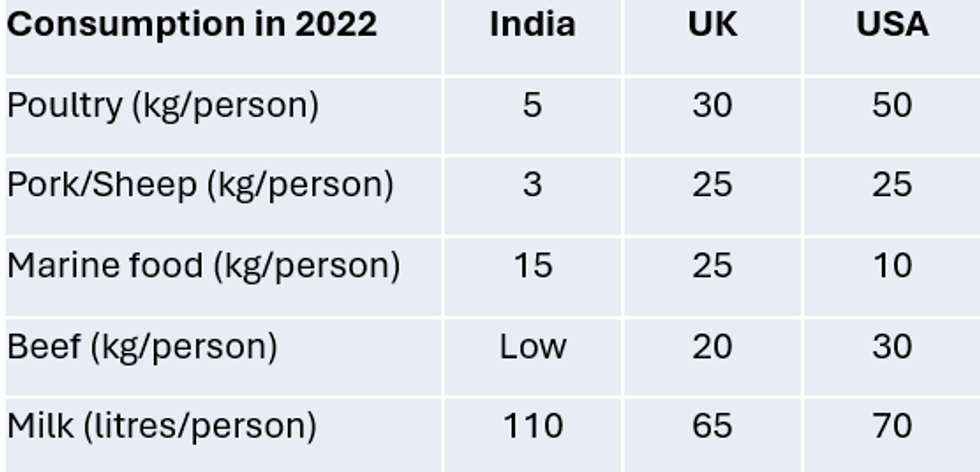NOW that the dust has settled on the May 4 local elections, we can step back and take stock of the results and their implications for British politics over the next 18 months. More than 8,000 seats were contested in 230 councils across England and over 1,000 Tory councillors lost their seats, while the Labour party won more than 500 seats.
Labour leader Sir Keir Starmer went as far as to claim that the result had set them “on course for a Labour majority at the next general election”.
But what does this all tell us about the current state of British politics, with the general election 18 months away?
My biggest takeaway is that the UK’s ongoing housing crisis is tangibly impacting our political landscape. It seems, from the results of the local elections, that it is a significant issue for swathes of people across the country. Even senior Conservatives are recognising that the government’s poor record of housebuilding is costing the Tories at the ballot box.
Britain today has a backlog of 4.3 million homes that are missing from the national housing market. Across England, the average house costs more than ten times the average salary, vacancy rates are below one per cent, and space per person for private renters has dropped substantially in recent decades.

The UK’s housing conundrum is reflected in the electoral challenge faced by the Tories in seats from Aberdeen to Amersham. This challenge has manifested itself within the party through major divisions over housing policy.
On one side you have MPs such as Theresa Villiers, who led a Tory rebellion against the government’s plans to introduce house-building targets. She champions the sentiment of the so-called NIMBYs, those who want to see the limiting or blocking of new housing developments, under the guise of environmental and cultural preservation.
And on the other, there are those sensible Tories, such as Simon Clarke MP, a much needed advocate for the pro-growth, prohousing building agenda. He understands that if the party wants to maintain control of seats across the rural and ‘left-behind’ areas, and hold on to what few they have in large towns and cities, they must legislate and reform to enable more homes to be built.
The government must find a way to rectify this split, if they want to have any chance of avoiding defeat in the general election. Yet, Labour has been too quick to declare their victory in 2024 inevitable. The reality is, when we delve into the numbers, there is still more for Sir Keir and his party to do.
Though Labour may be the biggest party in the House of Commons should they repeat their local elections success at the general election, they may well still fall short of a workable governing majority.
Sir Keir must continue to create a positive, forward-looking policy programme to take to the country. It seems that Labour understands this, with the party leader in recent days pledging to reform the UK’s planning system to make it easier to radically bolster the country’s housing stock.
This will certainly land well with those who are struggling to get on the property ladder and the private sector developers eager to get shovels in the ground.
Regardless of the results of the local elections, one thing is certain – neither party can afford to be complacent. The momentum lost by the Tories can quickly be regained if Labour slip up. But, with the 2024 general election looming, the Tories’ misery can be just as easily compounded if they fail to tackle pressing issues, such as housing, before election day arrives.
Labour’s promise to rethink the UK’s planning rules is a sign that they understand the importance of this issue and the solutions needed to address it. More must be done to create a system which encourages and facilitates an increase in the UK’s housing stock, through simplified planning rules and sufficiently resourced planning departments across the country.
If Rishi Sunak is serious about winning another term as prime minister, he needs to take some inspiration from his opposite number, else he run the risk of ceding valuablepolitical ground to Labour.
I would urge him to shrug off this month’s elections results and focus on addressing the tangible issues affecting voters’ everyday lives – with fixing the planning crisis being his first priority.


















 Palestinians transport belongings in Gaza’s Rafah last Wednesday (22), following a ceasefire between Israel and Hamas
Palestinians transport belongings in Gaza’s Rafah last Wednesday (22), following a ceasefire between Israel and Hamas Donald Trump
Donald Trump





 Krishna often depicted with calves and bulls as much as cows!
Krishna often depicted with calves and bulls as much as cows!
‘Tories must tackle housing shortage to remain in power’
Prime minister Rishi Sunak should focus on issues affecting voters’ everyday lives